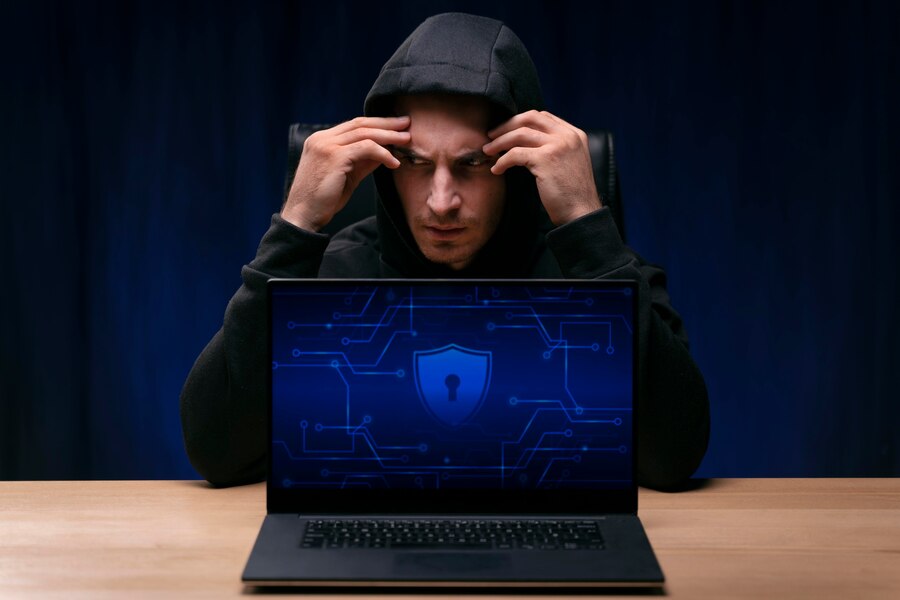In an increasingly digital world, understanding how to navigate Cyber Crime Law is essential for individuals and businesses alike. India’s legal framework, primarily governed by the Information Technology Act, 2000 (ITA), provides robust measures to combat cyber offenses, ensuring that victims have clear pathways for justice.
Overview of Cyber Crime Laws
The ITA was established to protect e-commerce and regulate online activities, responding to the rise in cybercrimes. Here are some key sections of the ITA that outline various cyber offenses:
- Section 43: Imposes penalties for unauthorized access and damage to computer systems, ensuring that victims can seek compensation for losses incurred.
- Section 66: Addresses computer-related offenses, such as hacking, with punishments that can lead to imprisonment of up to three years or hefty fines.
- Section 66B: Targets individuals who dishonestly receive stolen computer resources, carrying similar penalties as other offenses under the ITA.
- Section 66C: Focuses on identity theft, where misuse of someone else’s electronic signature or unique identification is punishable by up to three years in prison and fines.
- Section 66D: Criminalizes cheating by personation using computer resources, protecting individuals from deceitful online activities.
In addition to the ITA, the Indian Penal Code (IPC) contains relevant sections that address cyber fraud, including forgery and misrepresentation, broadening the legal framework to tackle cybercrimes effectively.
Steps to Handle Cybercrime Cases
- Immediate Reporting
Victims should promptly report cybercrimes to local law enforcement or specialized cybercrime units. This not only helps in tracing the perpetrator but also initiates the legal process.
- Collecting Evidence
Gathering robust evidence is crucial. This includes taking screenshots, saving emails or messages, and documenting any financial transactions related to the incident. Proper evidence can significantly strengthen a case.
- Formal Complaint Filing
After reporting the crime, file a formal complaint. Ensure that the complaint is detailed and includes all gathered evidence. This documentation is vital for law enforcement to investigate effectively.
- Consulting Legal Experts
Engaging a lawyer with expertise in Cyber Crime Law is essential. They can provide guidance on legal rights, help navigate the intricacies of cyber law, and represent the victim in any legal proceedings.
- Continuous Follow-Up
Maintain regular communication with law enforcement to track the progress of your case. Be prepared to provide additional information as requested, which can aid in the investigation.
Preventive Measures and Awareness
Preventing cybercrime is as important as addressing it. Here are several proactive steps individuals and organizations can take:
- Education: Schools and colleges should implement cyber literacy programs to educate students about cyber laws, safe online practices, and the importance of reporting cyber incidents.
- Regular Monitoring: Periodic review of bank and credit card statements can help detect unauthorized transactions early, minimizing potential losses.
- System Updates: Keeping operating systems and software updated is crucial for protecting devices from vulnerabilities that cybercriminals may exploit.
- Strong Password Practices: Utilize strong, unique passwords for different online accounts. Passwords should be at least eight characters long, combining letters, numbers, and symbols to enhance security.
- Two-Step Authentication: Enabling two-step authentication adds an extra layer of protection, requiring a verification code sent to a registered mobile number in addition to the password.
- Security Software: Install reputable security software that includes firewalls and antivirus protection to shield devices from online threats. Integrated security solutions, like Norton Internet Security, offer comprehensive protection against various cyber threats.
- Cautious Online Behavior: Avoid clicking on links in unsolicited emails that request personal information, as these could lead to phishing sites. Always review a company’s privacy policies before providing personal data.
Conclusion
Cybercrime remains a persistent challenge in our interconnected world. While the ITA has made significant strides in curbing these offenses, the need for continuous evolution in legal measures and public awareness is imperative. Understanding Cyber Crime Law enables individuals to navigate the complexities of legal recourse effectively.
To further enhance public understanding and awareness, ongoing education about cyber laws and personal responsibility in reporting cyber crimes is essential. By empowering individuals with knowledge and robust legal protections, we can foster a safer digital environment for all.


